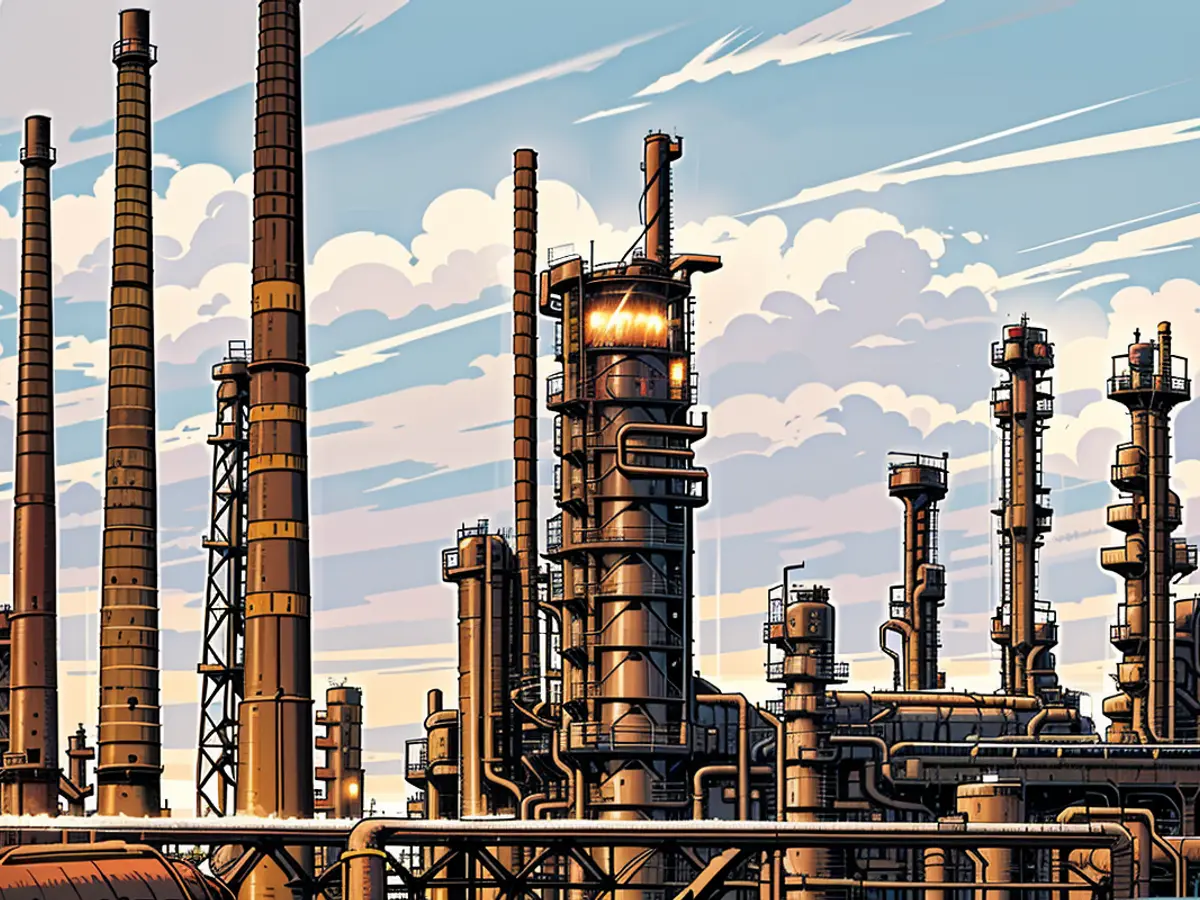Without oil from Russia - PCK Schwedt: Capacity utilization back at a good 80 percent
One and a half years after the withdrawal from Russian crude oil, the important refinery PCK in Brandenburg, Germany, manages to achieve an utilization rate of around 80 percent with the help of new supply routes. This is what can be achieved with the current supply sources, said PCK CEO Rolf Schairer on Monday on the sidelines of a visit by the Federal Commissioner for Eastern Europe Carsten Schneider. The figure is significantly above the utilization rate at the beginning of 2023 but below the figures from previous years. From the perspective of the Federal Government, the location is secure.
The refinery had long processed only Russian oil from the Druzhba pipeline. At the beginning of 2023, the Federal Government stopped the import of Russian pipeline oil due to the attack on Ukraine. Currently, 70 percent of the crude oil comes via a pipeline from the port of Rostock; the remaining 30 percent comes via the port of Danzig and from Kazakhstan, and is delivered via the Druschba pipeline.
To achieve over 80 percent utilization in crude oil processing, it would be necessary, among other things, to expand the Rostock pipeline, said Schairer. The Federal Government has pledged 400 million euros for this. The money is available, but the disbursement must still be approved by the EU Commission, said Economic State Secretary Michael Kellner (Greens).
The grant procedure has been ongoing for months. When a decision can be expected, Kellner did not say. His ministry acts as an intermediary between the Commission and the owners, he explained. The contribution of the owners is also necessary. Kellner emphasized, however, "PCK is secure. This also does not depend on these funding funds." The plant is on "solid ground."
It is still open whether more oil from Kazakhstan will be processed at PCK in the near future. The Kazakh government has offered to double the delivery of 100,000 tons per month. The latest figure was 120,000 tons, said Kellner. The Federal Government is in very close contact with the Kazakh side. An increase in deliveries is desirable. The refinery can theoretically process nearly a million tons of crude oil per month.
- The PCK refinery in Schwedt, Mecklenburg-Western Pomerania, is currently utilizing around 80% of its capacity for crude oil processing, thanks to new supply routes.
- The federally-owned PCK Schwedt refinery, known for processing Russian oil from the Druzhba pipeline, switched to alternative sources after Germany ceased importing Russian pipeline oil.
- Michael Kellner, the Economic State Secretary in Brandenburg, highlighted that while 70% of the crude oil comes via Rostock and Danzig, the remaining 30% is sourced from Kazakhstan via the Druschba pipeline.
- Rolf Schairer, CEO of PCK Schwedt, mentioned that to surpass 80% utilization, expansions on the Rostock pipeline would be necessary, a project for which the German Federal Government has pledged 400 million euros.
- Carsten Schneider, the Federal Commissioner for Eastern Europe, visited the PCK refinery and was confident in its security, noting that the refinery's sustainability is not solely reliant on funding from the EU Commission.
- With Russia contributing to the conflict in Ukraine, Germany's import of Russian pipeline oil ceased at the beginning of 2023, boosting the need for alternatives like the Kazakhstani oil supply.
- The refinery's capability to process nearly a million tons of crude oil each month leaves room for potential increases in Kazakhstani supply, as the Kazakh government has expressed interest in doubling its deliveries to Germany.
- The Federal Government actively pursues a close relationship with Kazakhstan, as an increase in deliveries to PCK Schwedt could enhance the utilization rate and meet Germany's energy needs, given the ongoing withdrawal from Russian oil.








